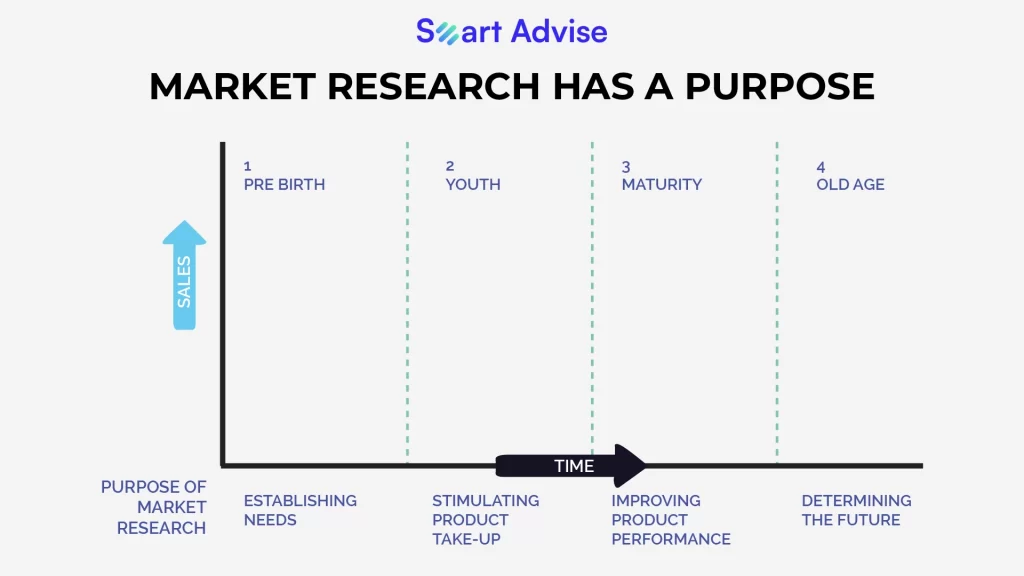
Uncover how demand creation strategies completely changed market research. Navigate evolving trends for impactful insights in a dynamic industry landscape
The role of market research has always been pivotal. It serves as the compass that guides businesses through the tumultuous waters of consumer preferences, industry trends, and competitive landscapes. However, the efficacy of market research is contingent upon its ability to adapt and innovate, particularly in the face of volatile market conditions. One such transformative force is the strategic deployment of demand creation tactics, which has ushered in a new era for the market research industry.
The Changing Face of Market Research
Traditionally, market research has been a reactive process, responding to the needs and queries of businesses seeking insights into their respective markets. However, with the advent of demand creation strategies, the industry has shifted towards a proactive approach. Demand creation involves stimulating the desire for a product or service before it even hits the market. This proactive approach has not only altered the timing of market research activities but has also influenced the methodologies employed by market researchers.
According to The Business Research, the global market size of the market research industry grew from $81.13 Billion in 2022 to $83.93 Billion in 2023 I.e with the CAGR 3.4%.

The Symbiotic Relationship: Demand Creation and Market Research
Demand creation strategies and market research are intrinsically linked, forming a symbiotic relationship that is reshaping the industry’s landscape. Traditionally, market research was seen as a support function, providing data to inform business decisions. However, the integration of demand creation strategies has elevated market research to a strategic role, making it a driving force behind the creation and shaping of demand itself.
Market researchers are no longer confined to the role of passive observers; instead, they actively contribute to the ideation and development of products and services. Through understanding and anticipating consumer needs, wants, and pain points, market researchers play a crucial role in guiding demand creation strategies. This collaborative approach ensures that products and services are not only well received but are also positioned strategically to meet market demands.
Predictive Analytics in Demand Creation
In the times of big data, predictive analytics has become a pioneering aspect for both demand creation and market research. Using analytics and machine learning algorithms, market researchers can now predict future trends, consumer behavior, and market dynamics with unprecedented accuracy. Predictive analytics enables businesses to identify latent demands, even before consumers are aware of them. Analyzing these vast datasets, market researchers can uncover patterns and correlations that inform the development of products and services that resonate with consumers. This not only reduces the time-to-market but also enhances the success rate of new offerings.
A study by Brain & Company found that businesses that use predictive analytics in their market research and demand creation strategies are 2 times more likely to be in the highest percentile of their industry’s financial results.
Challenges and Opportunities in the Fusion of Demand Creation and Market Research
While the integration of demand creation strategies into market research has undeniably brought about positive transformations, it has also presented challenges that require adept navigation. One such challenge is the need for market researchers to stay ahead of the technological curve. As demand creation becomes increasingly reliant on technology, market researchers must continually update their skillsets to harness the full potential of emerging tools such as artificial intelligence, data analytics, and automation.
Additionally, the ethical considerations surrounding data privacy and security have come to the forefront. With the abundance of consumer data being used to inform demand creation strategies, market researchers must navigate the delicate balance between extracting valuable insights and respecting individuals’ privacy rights. This requires the establishment of robust ethical guidelines and compliance frameworks within the industry.
Concern that companies and the government could misuse personal data was voiced by 97% of respondents, a report by Harvard Business Review said;
Despite these challenges, the fusion of demand creation and market research presents a myriad of opportunities for industry players. The ability to influence and shape consumer behavior opens up new avenues for revenue generation. Businesses that actively engage in demand creation strategies not only stay ahead of the competition but also position themselves as innovators in their respective markets.
Case Studies: Realizing the Impact
To further illustrate the impact of demand creation strategies on the market research industry, let’s take a look at couple of real-world case studies:
Apple Inc.: Apple’s product launches are exemplary instances of demand creation at its finest. Market researchers at Apple meticulously analyze consumer trends, preferences, and pain points to develop products that create demand even before consumers realize they need them. The buzz and anticipation surrounding Apple product launches are not just the result of effective marketing; they are a testament to the seamless integration of demand creation and market research.
Amazon: Amazon’s success is attributed not only to its vast product catalog and efficient logistics but also to its mastery of demand creation. With the help of sophisticated algorithms and data analytics, Amazon anticipates consumer needs and recommends products with remarkable accuracy. This proactive approach to demand creation, informed by continuous market research, has propelled Amazon to the forefront of e-commerce.
The Future Horizon: Artificial Intelligence and Beyond
Looking ahead, the role of artificial intelligence (AI) in the fusion of demand creation and market research cannot be overstated. AI-powered tools are capable of processing vast amounts of data in real-time, identifying patterns, and making predictions with unparalleled precision. From sentiment analysis to predictive modeling, AI is poised to revolutionize the way market research is conducted and demand is created.
In Conclusion,
The impact of demand creation strategies on the market research industry is transformative, ushering in the time where market researchers are not just observers but active contributors to the creation and shaping of demand. The symbiotic relationship between demand creation and market research, bolstered by predictive analytics and powered by emerging technologies like AI, is reshaping the industry’s terrain. A crucial factor in determining future success of companies will be the strategic integration of demand creation with market research, as they face the ever-changing dynamics of customer behavior and market trends. To gain a more insightful perspective of the market field, connect with us at Smart Advise now!